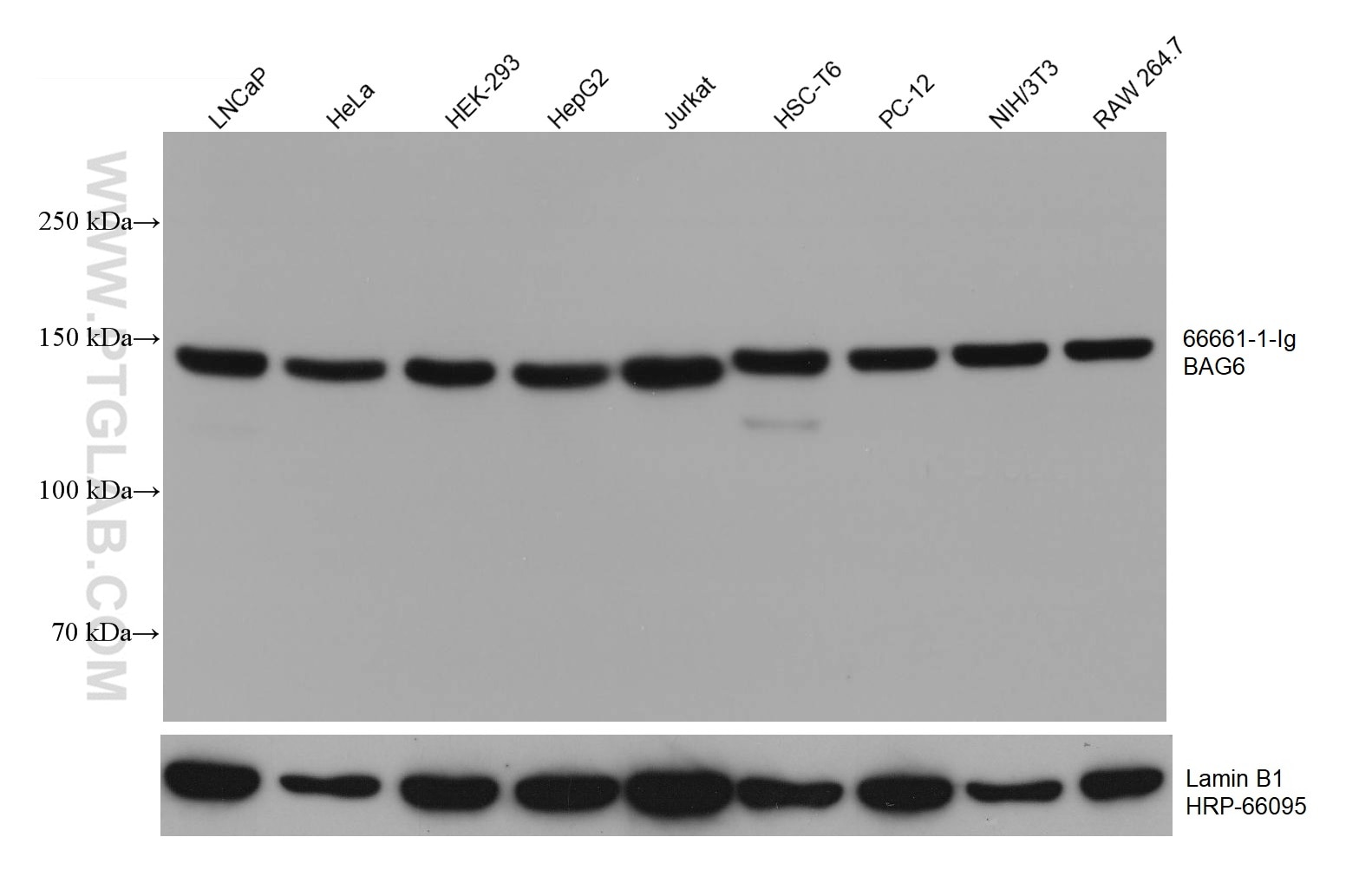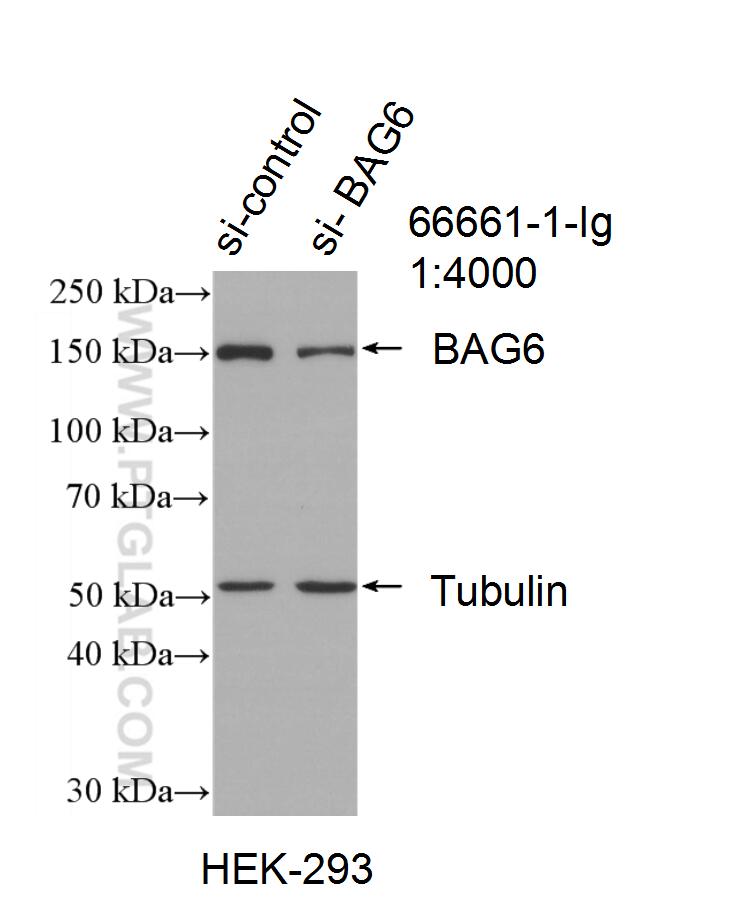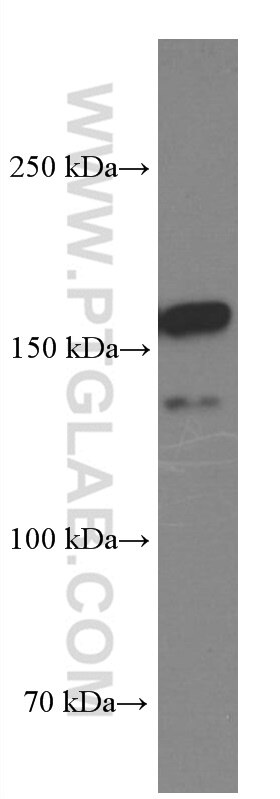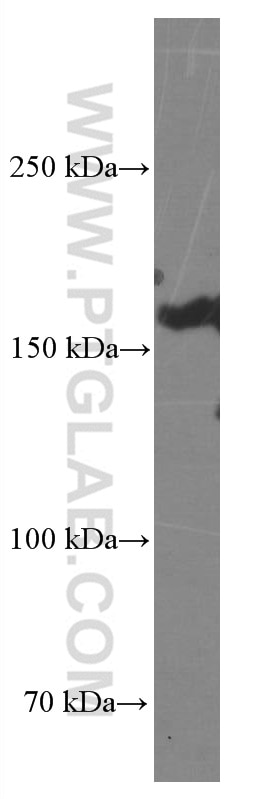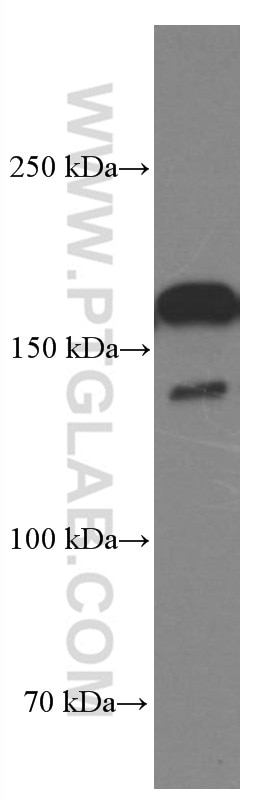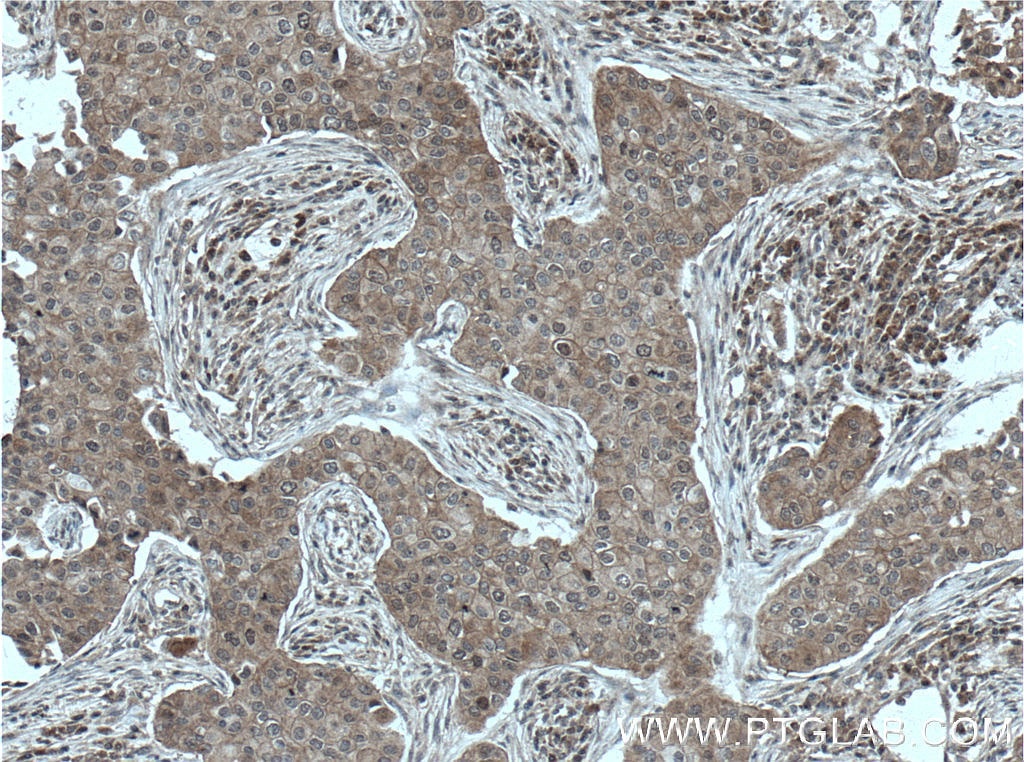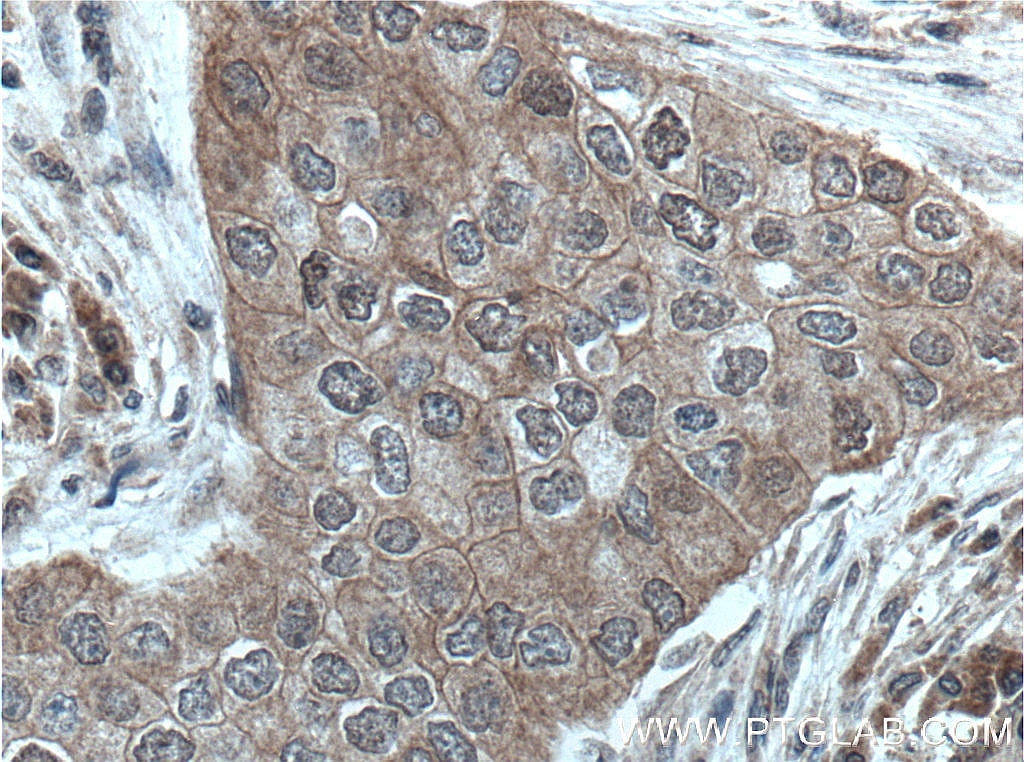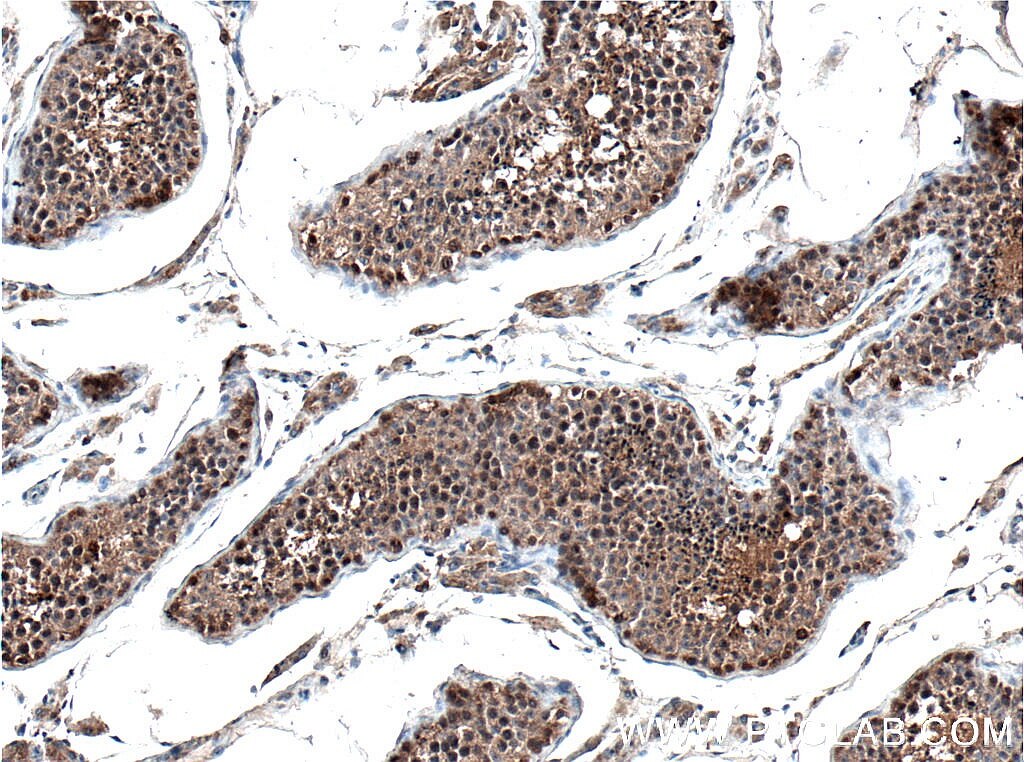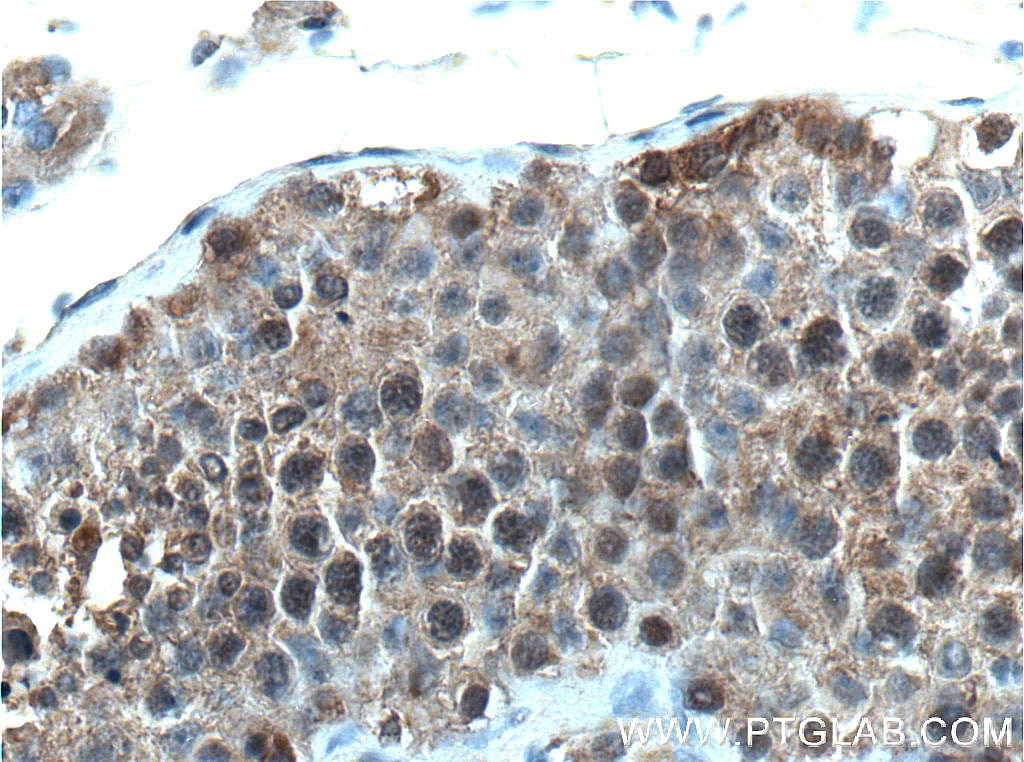Tested Applications
| Positive WB detected in | LNCaP cells, HEK-293 cells, HeLa cells, HSC-T6 cells, NIH/3T3 cells, RAW 274.7 cells, PC-12 cells, Jurkat cells, HepG2 cells |
| Positive IHC detected in | human breast cancer tissue, human testis tissue Note: suggested antigen retrieval with TE buffer pH 9.0; (*) Alternatively, antigen retrieval may be performed with citrate buffer pH 6.0 |
Recommended dilution
| Application | Dilution |
|---|---|
| Western Blot (WB) | WB : 1:5000-1:50000 |
| Immunohistochemistry (IHC) | IHC : 1:50-1:500 |
| It is recommended that this reagent should be titrated in each testing system to obtain optimal results. | |
| Sample-dependent, Check data in validation data gallery. | |
Published Applications
| WB | See 1 publications below |
Product Information
66661-1-Ig targets BAG6 in WB, IHC, ELISA applications and shows reactivity with human, mouse, rat samples.
| Tested Reactivity | human, mouse, rat |
| Cited Reactivity | human |
| Host / Isotype | Mouse / IgG1 |
| Class | Monoclonal |
| Type | Antibody |
| Immunogen |
CatNo: Ag24525 Product name: Recombinant human BAG6 protein Source: e coli.-derived, PET30a Tag: 6*His Domain: 1-184 aa of BC003133 Sequence: MEPNDSTSTAVEEPDSLEVLVKTLDSQTRTFIVGAQMNVKEFKEHIAASVSIPSEKQRLIYQGRVLQDDKKLQEYNVGGKVIHLVERAPPQTHLPSGASSGTGSASATHGGGSPPGTRGPGASVHDRNANSYVMVGTFNLPSDGSAVDVHINMEQAPIQSEPRVRLVMAQHMIRDIQTLLSRME Predict reactive species |
| Full Name | HLA-B associated transcript 3 |
| Calculated Molecular Weight | 119 kDa |
| Observed Molecular Weight | 150-160 kDa |
| GenBank Accession Number | BC003133 |
| Gene Symbol | BAT3/BAG-6 |
| Gene ID (NCBI) | 7917 |
| RRID | AB_2858188 |
| Conjugate | Unconjugated |
| Form | Liquid |
| Purification Method | Protein G purification |
| UNIPROT ID | P46379 |
| Storage Buffer | PBS with 0.02% sodium azide and 50% glycerol, pH 7.3. |
| Storage Conditions | Store at -20°C. Stable for one year after shipment. Aliquoting is unnecessary for -20oC storage. 20ul sizes contain 0.1% BSA. |
Background Information
BAT3 also known as Scythe or BAG6, is a nuclear protein implicated in the control of apoptosis and natural killer (NK) cell-dendritic cell (DC) interaction. BAT3 was first discovered as a member of a group of genes located within the class III region of the human major histocompatibility complex on chromosome 6, and has been extensively studied for its role in regulating apoptosis under various stress conditions such as DNA damage and endoplasmic reticulum-related stress. BAT3 has been shown to be required for p53 acetylation, which is critical for the enhancement of p53 transcriptional activity in response to DNA damage. In addition, BAT3 is involved in the regulation of development and reproduction of mammals by acting as a co-chaperone of the heat shock protein HSP70.
Protocols
| Product Specific Protocols | |
|---|---|
| IHC protocol for BAG6 antibody 66661-1-Ig | Download protocol |
| WB protocol for BAG6 antibody 66661-1-Ig | Download protocol |
| Standard Protocols | |
|---|---|
| Click here to view our Standard Protocols |

